INDIGENOUS BUSINESS AUSTRALIA




A message from our CEO
"This year, we celebrated 50 years of IBA. From home ownership to business success and financial wellbeing, the stories we’ve shared in 2025 remind us of the strength and determination within Aboriginal and Torres Strait Islander communities. Thank you to customers, partners, and the IBA team for making this journey possible. As we look to 2026, we remain committed to creating opportunities that build prosperity for generations to come."
— David Knights, Chief Executive Officer, IBA
Reflecting on 2025: A year of growth and impact
As 2025 comes to a close, we reflect on a year that has been nothing short of extraordinary. This year marked 50 years of Indigenous Business Australia, a milestone that celebrates generations of resilience, innovation, and progress. Together, we’ve honoured our past, embraced the present, and set our sights on an even brighter future.
From supporting First Nations entrepreneurs, helping people right around the country get into home ownership, and more broadly expanding opportunities for economic independence – every milestone we’ve reached has been a testament to the strength of collaboration within the organisation, with our partners, with our allies, and most importantly with you – our customers, our mob.
2025 highlights: stories that inspired
This year, we shared powerful stories that reflect the heart of IBA’s mission:
Looking forward to 2026
As we step into the next chapter, our focus remains clear: creating pathways for First Nations people to thrive. We’ll continue to share stories, launch new initiatives, and work alongside communities to build a stronger, more inclusive economy.
Thank you for being part of our journey. Here’s to the next 50 years and beyond.
Deadly Skincare isn’t just a brand; it's a story of resilience, heritage, and innovation. Founded by Erika Ferrier, a proud Bundjalung and Gamilaroi woman, this First Nations-owned, female-led company is redefining beauty through culture, sustainability, and science.
“Deadly Skincare started from my kitchen table, but its spirit comes from my late Pop and Nan, who taught me the power of education, culture, and never forgetting where I come from,” Erika shares.
Beauty with purpose
Deadly Skincare uses Australia’s native botanicals, and every formula is cruelty-free and sustainably made, with eco-conscious packaging—a reflection of Erika’s commitment to caring for both skin and Country.
“I wanted to create something that celebrates my culture and gives back to my community.”
Breaking barriers in beauty
Erika’s journey hasn’t been easy. Representation in the beauty industry is still limited, and being a First Nations woman, and a mother, comes with unique challenges.
“Being a First Nations woman, especially in the beauty industry, it's been challenging, especially as a mum, as well having people underestimate you.”
But her resilience shines through, and her advice for aspiring entrepreneurs is powerful:
“Your story is your strength. Don’t doubt yourself, back yourself.”
Support that makes a difference
Turning a vision into reality takes more than passion, it takes support. For Erika, IBA was a game-changer.
“They're very supportive and always down for a yarn to talk over any challenges that I'm having in the business. So, it's been good to have that mentoring.”
Her advice? “Pick up the phone and reach out to IBA, have a yarn and see how they can help you.”
Redefining beauty with culture and care
Deadly Skincare is more than a beauty brand, it’s a celebration of heritage, sustainability, and empowerment. Every product tells a story of resilience and respect for Country.
Thinking about starting your own business? Take Erika’s advice: Don’t doubt yourself—back yourself. And reach out to IBA for the support you need.
Important links
Purple House believes that everyone deserves to stay connected to family, culture, and Country—even while undergoing dialysis treatment—and IBA is a proud supporter of that vision.
For more than 20 years, this Aboriginal community-controlled organisation has helped people living with kidney disease return home to remote communities across the Northern Territory, Western Australia, and South Australia. Starting with just one dialysis machine in a small, purple-painted house in Mparntwe (Alice Springs), Purple House now operates 20 remote dialysis clinics and a mobile dialysis unit, the Purple Truck, helping 200–300 patients access treatment closer to home each year.
As one team member shared:
“My favourite part of the job is just working with the people, caring for them, making sure they’re doing okay. We do bush trips, men’s groups, ceramics… it’s about filling up their spirit and making sure they don’t feel alone.”
Purple House’s approach goes beyond clinical care - it’s about cultural care too.
“Our culture is the longest living continuous culture in the world -65,000 years and more. We’ve been looking after people for a long time, and we want to make sure they feel connected even when they’re away from Country.”
Delivering care in some of the most remote parts of Australia comes with challenges. Reliable transport is essential, and that’s where IBA stepped in.
“IBA was a great option for us because it meant that we could lease cars. That meant as our fleet grew, we could keep a closer eye on it, and we wouldn’t need to hang on to cars that really weren’t fit for purpose anymore or were potentially dangerous.”
“Our experience of IBA is that they are incredibly responsive. They understand our business, and they try to make it as simple as possible for us to do our business in a safe, effective way.
Through a mix of Operating Leases, Finance Leases, and Chattel Mortgages, IBA has helped Purple House maintain safe and reliable transport for staff and patients; this ensures care reaches those who need it most.
If you’re starting a business or already have an established business but want to know what you can do next, contact IBA and speak to one of our specialists or click here for more information.
Important links
Indigenous Business Australia was a proud sponsor of the World Indigenous Business Forum (WIBF) 2025, held in Melbourne, Australia.
With strong representation from across the IBA network – Board member Brian Bero, CEO David Knights, Deputy CEO Sean Armistead, Faysal Fassi, Trudy Hart, Rachelle Singleton, Greg Ellis, Gordon Jeffrey, June Edwards, Frank Lowah, Jazmin Poyser, Lachlan Gilmore, Georgina Parisi and Eric Kalolo – our organisation played a central role in advancing conversations around Indigenous-led trade, business growth, inclusive economic development, and global collaboration.
The forum brought together delegates from more than 15 countries, creating a vibrant space where Indigenous cultures, languages, and leadership styles were celebrated. It was a powerful and moving experience to witness such a rich tapestry of Indigenous representation – each community bringing its own stories, strengths, and aspirations to the global stage.
The WIBF is a global initiative founded by the Indigenous Leadership Development Institute Inc. (ILDII) which is a not-for-profit Indigenous-run organisation based in Winnipeg, Manitoba, Canada. Since its inception in 2010, WIBF has travelled across continents, partnering with host countries and Indigenous communities to spotlight Indigenous economic development.
Across three days, WIBF 2025 featured a series of panels and presentations covering a wide range of topics. Each session offered unique insights into the challenges and opportunities facing Indigenous businesses globally.
Our session “When First Nations Trade: The Resumption of International Markets” moderated by Treaty Authority member Duean White, brought together influential voices including:
The panel also explored gender-aware strategies, acknowledging that women and men often navigate business differently. The conversation called for inclusive systems that respond to diverse leadership styles and lived experiences.
For behind the scenes and highlights: The World Indigenous Business Forum 2025.
Step into the wild heart of the Northern Territory through the lens of Paul Thomsen, a photographer whose work doesn’t just document nature, it immerses you in it.
Born in Darwin in 1968, Paul has spent his life surrounded by the rugged beauty of the Top End. With over 35 years behind the camera and more than a decade as a professional, Paul’s photography is a breathtaking tribute to the land, its creatures, and the stories they tell. His Indigenous heritage deeply informs his connection to Country, allowing him to capture moments that are both intimate and powerful.
Whether it’s the electric drama of a storm rolling across the horizon or the quiet majesty of a saltwater crocodile in its natural habitat, Paul’s imagery is nothing short of phenomenal. His style invites viewers to step into the frame – to feel the humidity, hear the birdsong, and witness the wild through his eyes.
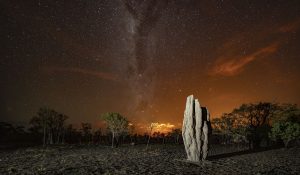
Paul’s passion for photography extends beyond the frame. Through WildFoto, he offers a range of workshops and tours designed to inspire and educate. From beginner-friendly camera fundamentals to advanced wildlife and storm photography, his classroom sessions are as dynamic as the landscapes he captures. And for those eager to explore the Top End with camera in hand, Paul’s private and public tours offer unforgettable adventures.
With support from IBA, Paul was able to open his gallery and café in Marrakai – a stunning stopover on the Arnhem Highway between Darwin and Kakadu. “IBA made the difference between me being able to do it and not,” Paul says. “They were instrumental in the success of my business.”
Paul’s message to other Indigenous entrepreneurs is simple and encouraging: “Make contact with IBA even if you think you are unsure and not confident. They have good people that will let you know what you need to do.”
Check out this video we created with and about Paul or visit his website.
And to find out more about how we can help you turn your passion into a thriving enterprise, take a look at our business loan offerings here.
Ray Pratt is a proud Western Arrernte man from Alice Springs and the founder of DICE, a business delivering construction, electrical contracting, and renewable energy projects with an integrated approach on Larrakia Country, Darwin.
Ray’s journey into business was shaped early on by his hardworking parents – especially his father, whose entrepreneurial spirit inspired Ray. “Watching my old man build a business in remote areas and create opportunities … I wanted to do something similar,” Ray shares.
“Meeting kids my age who didn’t have the same opportunities made me realise the importance of bringing others forward – not just giving back.” DICE has trained many men and women in trades, project management, and contract administration. Ray is committed to building the next generation of leaders.
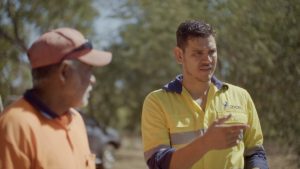
With a strong team of more than 80 staff including a strong Indigenous contingent – Ray credits his team and his family for enabling him to lead with purpose. “I might be the only owner, but I’m nothing without the team. And I certainly couldn’t do what I do without my amazing wife and kids.”
DICE uses an IBA offering that supports large-scale contracts via performance guarantees. “Without IBA, we wouldn’t be on the same growth trajectory. Their support increases our cash flow at the start of major projects. Cash is king – and IBA helps with that.”
Ray’s advice is grounded in experience:
Watch Ray’s full story here.
*Important: in the video Ray speaks of bank bonds – Indigenous Business Australia offers performance bonds, rather than bank bonds. See here for more information: Performance Bonds - Indigenous Business Australia
This year marked our second proud participation in the Koori Knockout a powerful, humbling, and deeply enriching experience. Alongside the belly laughs, hearty meals, and meaningful connections, we walked away with renewed purpose and insight.
More than a sporting event, the Koori Knockout is a cultural cornerstone. With an estimated 40,000 attendees, it stands as the largest annual gathering of First Nations peoples in Australia. It’s a celebration of community, identity, and resilience where stories are shared, pride is amplified, and connections run deep.
Our Purpose at the Knockout
For IBA, being present at the Knockout wasn’t just about setting up a stall or distributing flyers. It was about listening deeply, learning respectfully, and exploring new ways to walk alongside community. Our presence was guided by a commitment to genuine engagement to show up, stay curious, and build trust.
Why Community Events Matter
IBA exists to support the self-determined economic empowerment of Aboriginal and Torres Strait Islander peoples. We know that real impact begins with being on Country, in community, and in spaces where mob feel safe, proud, and strong.
Events like the Knockout give us the opportunity to:
Reflections and Learnings
As a returning sponsor, we took time to reflect on what we learned and how we can continue to grow:
These insights are helping shape how we engage not just at events, but across all our services and programs.
To everyone who stopped by our stall, shared a yarn, or participated in our voxpops thank you. Your stories, laughter, and wisdom continue to guide us.
We’re committed to walking together, listening deeply, and showing up not just at the Knockout, but wherever community leads.
Taunurung woman, Nicole, is a successful business and homeowner, with a lot to be proud of. But she takes the greatest pride in the values and financial independence that she inspires through generations of her family.
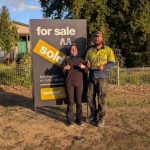
Nicole was determined from a young age to get on the property ladder early, to build her financial future. She achieved this at just nineteen years old, through a loan with ATSIC (which later became IBA) and bought the ex-housing commission home that she’d grown up in.
“It was small, but over the years I made improvements to it,” Nicole said. “Funny thing is – I always understood the value of owning a home. I didn’t want to pay rent and waste money that could go into my own home.”
In time, Nicole transitioned to a mainstream lender and moved to another home. Fast-forward almost forty years and one of Nicole’s three daughters, Georgia, has recently been approved for her first IBA home loan.
“I told Georgia about IBA and the value in saving to get her own place,” Nicole said. “I wanted her to have her own place too, not to waste money on rent.”
“It’s hard work and a lot of paperwork, but worth it. She’ll have her own home.”
“If Georgia had to go down a regular path, it’d be years before she had enough saved for a 20% deposit on a house. So, I kept saying to her, ‘make the enquiry at IBA’.”
Georgia and her partner, Mackenzie, have just found a home of their own with a backyard to share with their adored animals – she is the owner of three cats and wants to add to the brood with chickens and a dog.
“Sticking our sold sign onto the sale board was an amazing feeling!” Georgia said.
“I grew up with mum always having a home, and she inspired me to want the same.”
“I did rent for a while and it’s hard to save and have security when renting. I could see that the money I was paying in rent could be going into a place of my own.”
“So, I moved back to Mum’s for twelve months to squirrel my money into savings.”
While Georgia was looking for her home, Nicole was with her every step of the way and helping her go through building reports, paperwork and giving her advice on her home purchase.
“Mum has made me very aware of what I’m getting into!” Georgia laughed.
Nicole also owns and runs a successful business, Gerrbik Laundry Services. She bought it from her dad (then known as Complete Workwear Laundry Services) with an IBA business loan in 2015. We met her back then to yarn about her business journey: Poised for success - Indigenous Business Australia.
While Nicole’s business is flying now, she has faced huge challenges. Her core business is servicing the airline industry, and she says COVID-19 restrictions wiped out 95% of her business overnight. Nicole says that at times she thought she might lose her business, and her house (which had been used as collateral for the business). But managed to keep going and weather the storm.
"My connection with IBA has been a lifeline to me!" said Nicole. "They believed in me which has given me a lot more belief in myself."
Her hard work and tenacity paid off and the business revenue has since tripled from pre-Covid including a 7-year contract with an airline for their laundry service. Nicole credits the business success to her amazing team which includes three generations of family working with her, something that she is very proud of.
Georgia has also inherited her mum’s strong work ethic. She is a professional baker and part of a boutique artisan bakery, working early hours and long days. She’s not afraid of hard work.
Nicole’s impact through the generations doesn’t stop there. She’s also encouraging one of her other daughters to start preparing to apply for an IBA loan and saving for a deposit.
“It’s about sustaining yourselves through life.” Nicole said. “We need to be self-sustainable. I want to pass that on to my kids and grandkids.”
“My nine-year-old grandson already wants a house too,” she continued. “He even saved his birthday money. That’s exciting - knowing it’s passed down. That will be a legacy for our family.”

~~~~~~~~~~~~~~~~~~
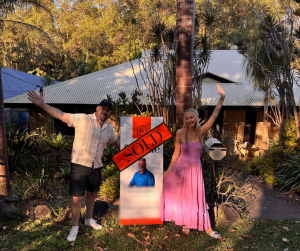
Meet Pete and Kylie who went from aspiring homeowners to proud first homeowners. Their journey is a powerful testament to what’s possible when determination meets the right support.
Like many aspiring homeowners, Pete and Kylie began their journey with hope and uncertainty. But with the guidance of IBA Home Loan Officer Michelle, they found not only expert advice but a source of empowerment, strength, and heartfelt support.
In a deeply moving letter, Pete and Kylie shared their gratitude:
"To dearest Michelle,
It's difficult to begin to describe just how much we appreciate you and everything you did for us during this process...! But I'll try anyway!
We heard of IBA through a friend, and when we finally decided to make an inquiry, how very lucky we were to have our case handled by you, Michelle!
I lost count of the minutes and hours you spent guiding us through the process. It wasn't the time and hours which meant so much though. What really meant so much to us was the kindness, warmth, humour, and genuine empathy you so generously shared with us through the entire process. It felt like we had a guardian angel sent to us to help us change the course of our entire lives for the better. And you really have!!
This week we became proud homeowners, and without the help of IBA, the beautiful Michelle, and the lovely Ros, there’s not a chance we could ever have got into the market and stayed in the area where we so happily live.
We now have a platform to live the life of our dreams, and I want to convey just how meaningful it is to people like me, an Indigenous man with no access to generational wealth, to have this opportunity which I never thought could be possible.
From the bottom of our hearts, we thank you Michelle and IBA for being a significant positive turning point in the course of the lives of two incredibly grateful people.
You’ll eternally be a shining star in our skies!!!
Lots of love and gratitude,
Pete and Kylie."
Their story is more than a celebration of buying a home it’s a reflection of the strength of First Nations families building futures rooted in pride, place, and possibility. It’s about rewriting what’s possible for the next generation.
Their journey highlights the importance of culturally safe support systems and the transformative impact of community-driven services.
Congratulations, Pete and Kylie! Your story inspires us all and reminds us that with the right support, anything is possible.
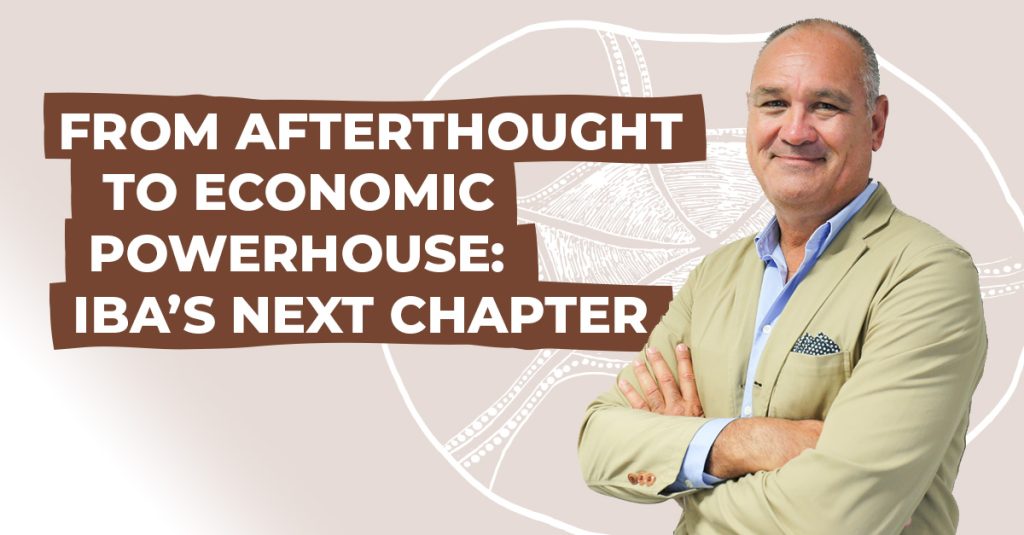 NAIDOC Week 2025 arrives at a defining moment for Indigenous economic participation in Australia. As Chair of Indigenous Business Australia, I had the privilege of addressing our staff during this historic week under the theme “The Next Generation: Strength, Vision & Legacy". This theme is more than symbolic. It captures the essence of the transformation now underway within IBA and across the wider Indigenous economic landscape.
NAIDOC Week 2025 arrives at a defining moment for Indigenous economic participation in Australia. As Chair of Indigenous Business Australia, I had the privilege of addressing our staff during this historic week under the theme “The Next Generation: Strength, Vision & Legacy". This theme is more than symbolic. It captures the essence of the transformation now underway within IBA and across the wider Indigenous economic landscape.
This year marks a turning point in how Australia supports, enables, and partners with Indigenous peoples on their economic journey. Through recent legislative reforms, IBA has been fundamentally repositioned, from a concessional lender to a capital markets participant, from facilitator to active investor. This evolution is neither cosmetic nor administrative; it is structural and generational. We are witnessing the emergence of IBA as an Indigenous economic powerhouse.
The expansion of IBA’s legislative authority in February of this year, was a watershed moment in national economic policy. Parliament’s decision to expand IBA’s powers - empowering it to access capital markets, make direct investments, and deploy specialist financial products -signals a new maturity in Australia’s approach to Indigenous economic inclusion.
IBA is no longer simply a lender of concessional finance. With a $2 billion asset base, it now has the scale, legislative backing, and strategic ambition to play an active role in major national projects, from renewable energy zones and defence infrastructure to agricultural investments and social infrastructure such as housing, facilities for aged and assisted care. This expansion honours IBA’s original legislative purpose:
Australia's broader productivity agenda, seeks to remove friction in high-value chokepoints and create new engines of economic growth. IBA is now structurally equipped to help deliver on that agenda. By enabling Indigenous Australians to shift from stakeholders to shareholders, from hosts of other peoples’ development to co-owners in transformative national initiatives.
The expanded IBA is building an investment architecture that will endure and scale. This means growing our capital base, building internal project finance capability, and creating the governance frameworks that will attract institutional co-investment. It also means forging strategic partnerships with capability partners across Australia’s banking and investment sectors and internationally.
We draw inspiration from international models. The First Nations Finance Authority in Canada has raised over $CAD2.5 billion and achieved investment-grade credit ratings, enabling Indigenous participation in more than half of Canada’s renewable energy projects. In the United States, Alaska Native Corporations generate over $USD10.5 billion in annual revenues. Proof that Indigenous-controlled institutions can be commercially viable while remaining true to cultural priorities.
Indigenous Australia must resume its own version of this model. IBA will build Sector-Specific Investment Platforms in priority areas such as energy, mining, defence, agriculture, and infrastructure. These platforms will allow us to aggregate capital, reduce transaction friction, and create deal-flow that is both Indigenous-led and investment-ready. They will unlock long-standing, unmet infrastructure needs in regional economies and enable Traditional Owners to drive their own development agendas, particularly in remote and regional economies.
Moreover, our international linkages are growing. IBA is strengthening ties with the OECD, the World Bank, and APEC - global institutions that are increasingly recognising Indigenous economic inclusion as an economic priority. These relationships will bring technical expertise, policy frameworks, and professional exchange opportunities that will enhance IBA’s institutional maturity and leadership capacity.
Internally, we are also setting clear expectations for a performance-driven culture. We are investing in staff development, encouraging innovation, and embedding an ethos of excellence. The future of Indigenous investment will be shaped by those who can blend cultural authenticity with financial expertise. Our staff are being asked to step into that space.
For generations, Indigenous Australia has been marginal to the nation’s economic development frameworks. But that era is ending. With the Government’s announcement of a first-ever National Indigenous Economic Framework in last year’s MYEFO, and the links of IBA to Treasury and Finance portfolios, Indigenous participation is now a central feature of national economic planning.
This is not about special pleading. It is about recognising that Indigenous economic inclusion creates better outcomes for everyone. It improves investment certainty, enhances project resilience, and embeds social licence from the outset. When Indigenous participation becomes standard practice - rather than a compliance measure - it ceases to be a side program and becomes embedded business-as-usual.
This is how we move from afterthought to core. And it is why IBA’s future lies in partnerships with Treasury, Finance, and the Reserve Bank of Australia – the principal economic agencies of government. We must think and act as a specialist capital provider, a partner in national productivity, and an engine of Indigenous-led development. In short, we are evolving into an Indigenous development finance institution - rooted in Australian soil but linked to global best practice.
In this moment of transformation, I extend a genuine invitation: whether you're an IBA staff member, a Traditional Owner, an investment partner, or a policymaker - your contribution matters.
We ask our people to lead with capability, embrace a service-oriented attitude, and measure their performance by tangible outcomes for Indigenous communities. We ask our partners to walk with us in designing capital solutions that align commercial viability with intergenerational wealth creation. And we ask the broader nation to recognise that Indigenous participation is not a cost - it is a catalyst for a better Australia.
The infrastructure is being built. The legal mandate is in place. The economic possibilities for our children are within reach for Indigenous Australia.